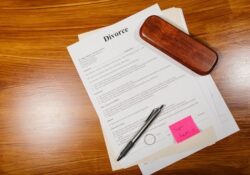deceased estate
To formalise his/her appointment, the executor must apply to the Master’s Office for what is referred to as letters of executorship which will only be issued if the Master is satisfied that the will is valid and that the nominated
Living annuities can play an important estate planning role if correctly structured. Where the annuitant nominates beneficiaries, any residual value remaining in the event of their death will be paid to the beneficiaries and, in doing so, will bypass the
While corporeal property refers to physical, tangible property such as a vehicle or a home, incorporeal property includes non-tangible rights such as servitudes and leaves over immoveable property.
In terms of calculating estate duty, there is an abatement on the first R3.5 million of the value of the estate which is not subject to tax. If the deceased is the first-dying spouse, they may roll over any unused
A trust can also be used strategically to safeguard your personal assets from the potential risks associated with business activities and/or insolvency. By setting up a living trust, you can transfer specific assets into the trust with the primary focus
From an estate planning perspective, there are several mechanisms available to reduce estate duty liabilities and, in turn, maximise the inheritance for your loved ones.
To avoid any doubt or confusion as to who the testator is, make sure that your will includes your full name and ID number. Many families make use of family names that get past through generations resulting in multiple members
In the context of one’s estate plan, note that once the trustees have made their determination, the proceeds will be paid directly to the beneficiaries and/or nominees and, as such, these assets fall outside of the deceased estate and are
The acquisition of foreign assets subsequent to drafting your will may necessitate a review of your will, although this would depend on the nature of the asset and the jurisdiction in which it is held. Generally speaking, a foreign will
The proceeds of business assurance policies are not considered deemed property in a deceased estate and therefore provide an exception to the general rule when it comes to calculating the dutiable estate. To qualify for an exemption, the buy-and-sell insurance




